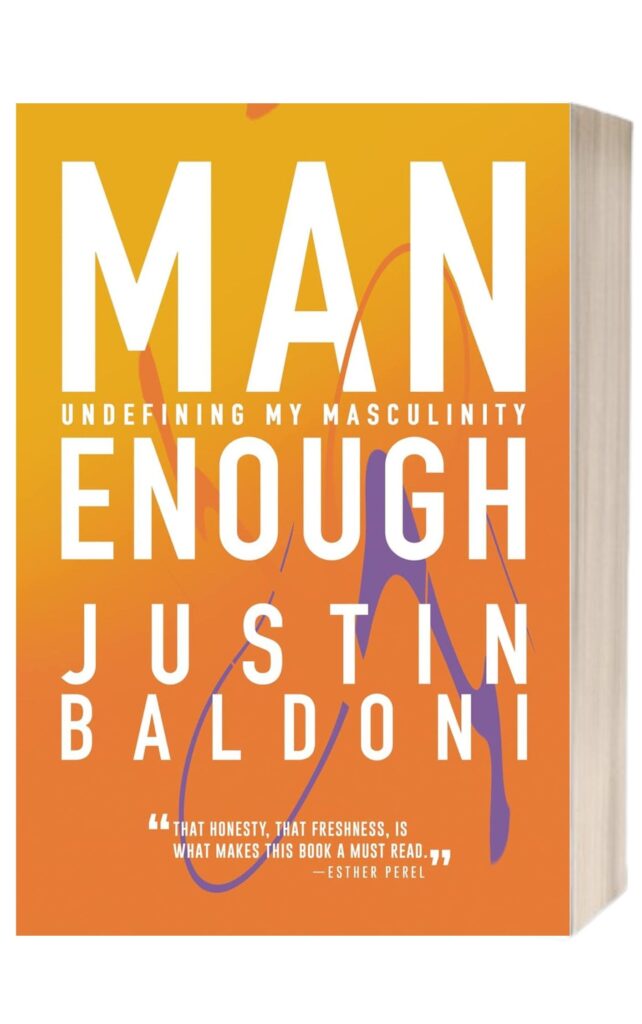Men are brave, yet those screams are heard by none. He is alone, fighting with his brain, allowing things to deteriorate. He can’t cry out loud for fear of society’s judgment. Phrases like “Men Don’t Cry” make a huge difference in the mind. “Yes, men can’t cry if they feel low because crying is seen as a sign of weakness, and you know men aren’t weak. Men are not supposed to be weak.” It doesn’t make one weak to cry, nor does it make one strong not to cry. Both men and women need to express their emotions.
Men are Brave: Men Don’t Cry, Another Stereotype
He is lost in the world. Whenever he looks into the mirror, he sees a predator looking back at him. He is bound by the shackles of society, and he can’t even think of himself as a victim, even though he is a victim of societal norms from the moment he was born.
“He is a hungry animal, always looking for his next target to betray, harass, or cheat,” society thought.
His whole body is screaming out loud except his lips, which seem happy always. He wants someone to listen to his soul, but everyone is waiting for his lips to speak. He’s carrying a weight of tons within himself, which he can’t lift but only drag. He’s slowly getting buried under that weight, but nobody is there to help him because he is STRONG and BRAVE. Let’s celebrate International Men’s Day.
This is the prologue of the story of “Men’s Life,” which remains buried in their souls. For the longest time, I also thought that men must have an easy life because of the shackles of patriarchy, chauvinism, misogyny, and many others.
We Have To Unlearn Society’s Brave Norms
Guys, this is not a debate on he/she; at this point in our time, we have to unlearn society’s norms and start to liberate our souls, moving towards a culture based more on kindness and empathy.
Males are socialized from an early age to bury their emotions. Men are expected to be strong and not cry. But I cry three to four times every week. When I cried in front of my friends, co-workers, and family in the past, I used to feel ashamed. I have come to terms with the fact that how I express my feelings is an integral part of who I am. It doesn’t make me less manly or weak.
He is Brave: Men Never Weep
The worst sentence I’ve ever heard is by far this one. Boys have been told since they were young not to cry, even if they trip and hurt themselves or if someone else does. One of the cruelest things a parent could teach their child is this. Men who don’t weep end up suppressing all their feelings since they don’t express any emotions at all, even if a male is mistreated, cheated on, or assaulted. He isn’t supposed to show his hurt, as this could trigger a huge explosion or some other type of outburst.
Stop Telling Young Men And Boys Not To Cry Men Are Brave
Asking guys not to cry in today’s society of equality and acceptance of one’s sexuality is akin to asking women not to be strong. Powerful women act like men, while men who cry act like women. These are the preconceptions that society has created, and, unfortunately, we are a part of one. Stop telling young men and boys not to cry. If any men who are reading this have made it this far, let me assure you that crying and expressing your feelings are both acceptable and do not denote femininity. Expressing one’s feelings is not regarded as feminine, both secretly and openly. As social animals, humans have an emotional instinct that we should all embrace, so it is related to everyone.
Finally, something to dispel the stereotype: literature, especially Shakespeare’s plays, has taught me something. You know how he flips and toys with gender roles, if anyone has read them, right? Well, I believe this is trying to say that we all have a feminine and a masculine aspect to our psychology as humans. Only our physiology differentiates us.
I am aware that you are a male and that you believe sobbing makes you appear frail. A man isn’t afraid of his tears, I can assure you of that. Men who aren’t afraid for others to see tears running down their cheeks are far stronger than anyone else.
Crying is a normal reaction to many different emotions. Some people cry when they are sad. Some cry when they feel joyful. People shed tears in times of fear or helplessness.
Man Enough: Undefining My Masculinity
Justin Baldoni’s “Man Enough: Undefining My Masculinity” is a moving and thought-provoking look at modern masculinity. Baldoni’s personal experiences and candid observations challenge conventional ideas of masculinity, encouraging readers to embrace vulnerability, compassion, and sincerity. He recounts his journey of self-discovery and growth, emphasizing the need to break free from cultural expectations and embrace a more inclusive and compassionate version of masculinity. This book is a powerful call for men to rethink their identities and relationships, providing a road map to a more fulfilling and authentic existence.

Conclusion
Expectations of men to be emotional and non-emotional resulted in a culturally harmful stereotype that limited the ability to express themselves freely. This paper looks at stereotyping and its positive consequences and investigates the notion of unlearning these standards. It is important to know that crying or expressing emotions does not undermine one’s strength or masculinity. Expressing his feelings, and emotions is a natural and healthy way. By encouraging those who address these ancient attitudes to embrace their emotions, we can create a more compassionate and understanding society for all.
FAQs
Q: Why are men expected to be strong and not show emotions?
A: Society has long held the belief that expressing emotions is a sign of weakness, particularly among men. This notion is based on conventional gender stereotypes that attribute power and stoicism to males while linking emotional outpouring with femininity.
Q: How does suppressing emotions affect men’s mental health?
A: Men’s mental health might suffer significantly when they suppress their feelings. It can cause increased stress, anxiety, and sadness. It can also influence relationships since the inability to articulate feelings can prevent communication and closeness.
Q: How can men break free from the “Men Don’t Cry, Men Are Brave” stereotype?
A: Men can overcome this preconception by defying cultural conventions and expectations. This involves admitting and embracing their feelings, getting help from friends, family, or mental health specialists, and rethinking what it means to be strong and male.
Q: What are some positive ways men can express their emotions?
A: Men may express themselves positively in a variety of ways, including talking to a trusted friend or therapist, engaging in creative outlets such as painting or music, practicing mindfulness or meditation, and participating in physical activities such as exercise or sports.
Q: How can we support men in expressing their emotions more openly?
A: We can help males by providing a secure, nonjudgmental setting in which they may express their emotions. This entails actively listening, supporting their feelings, and overcoming assumptions that associate emotional expression with weakness.





